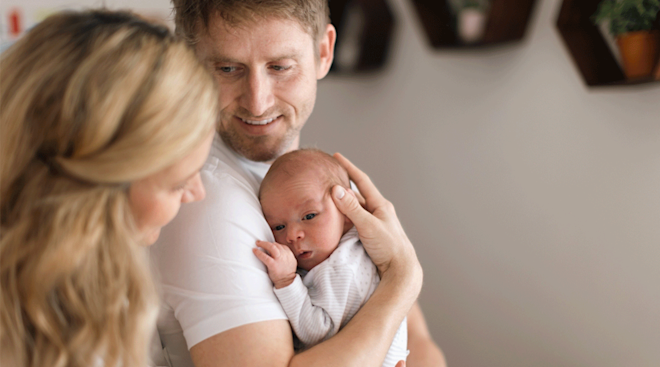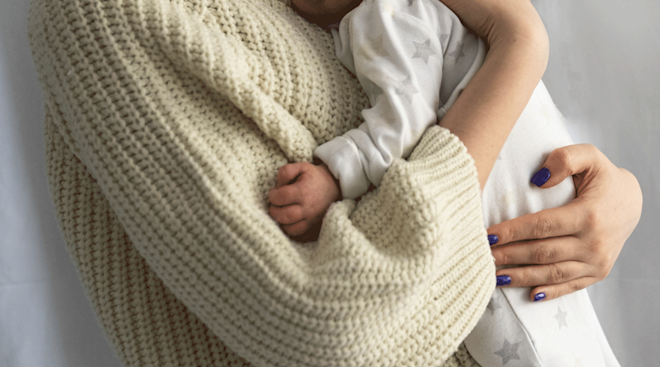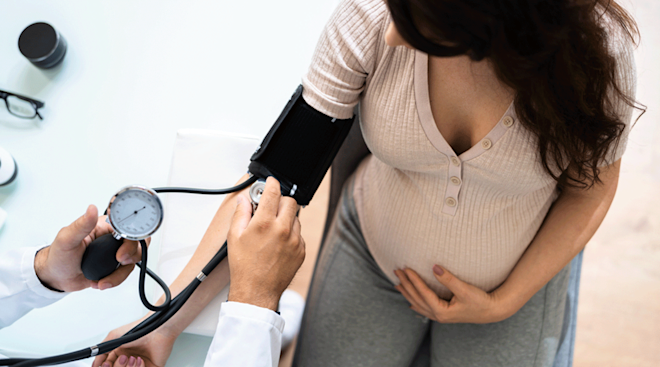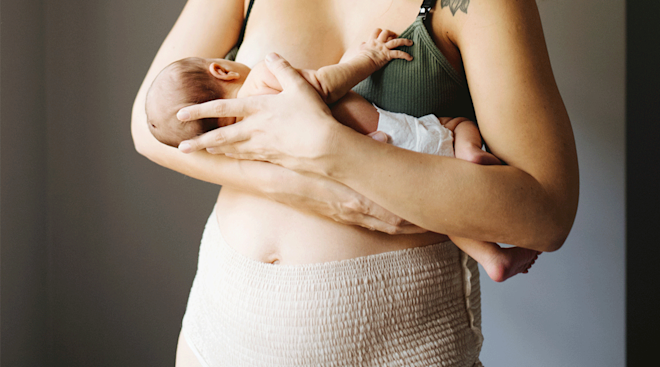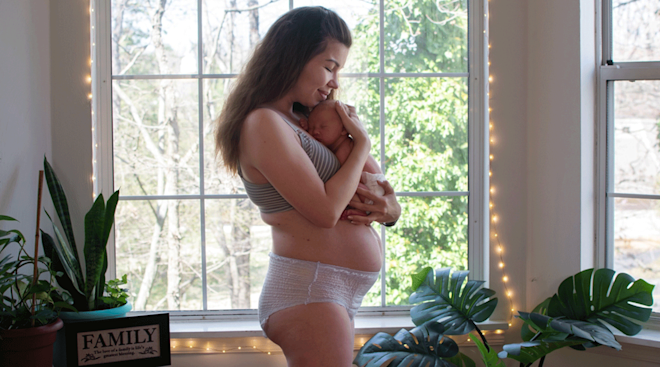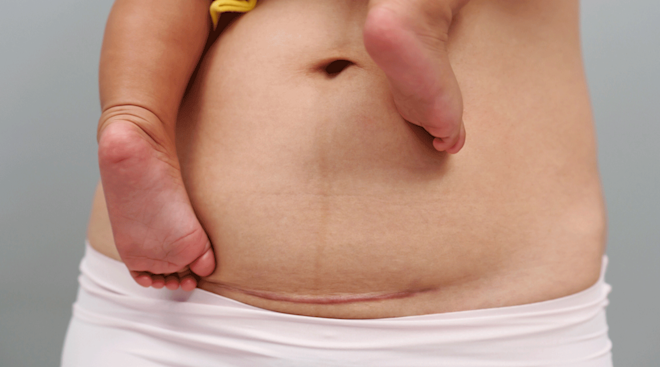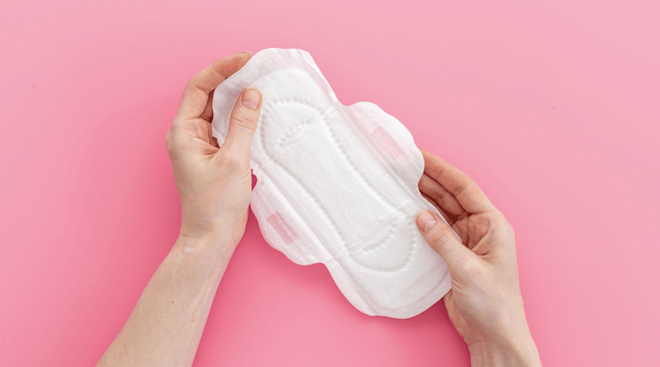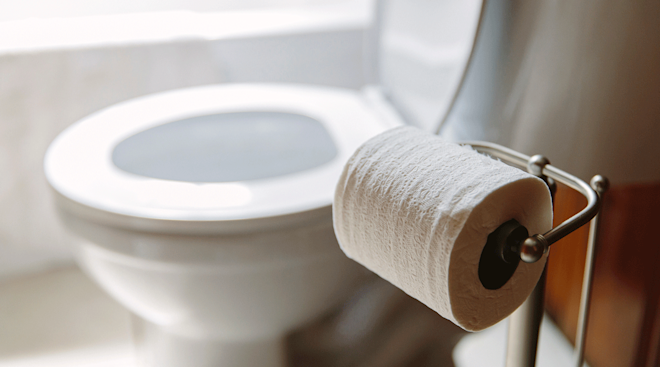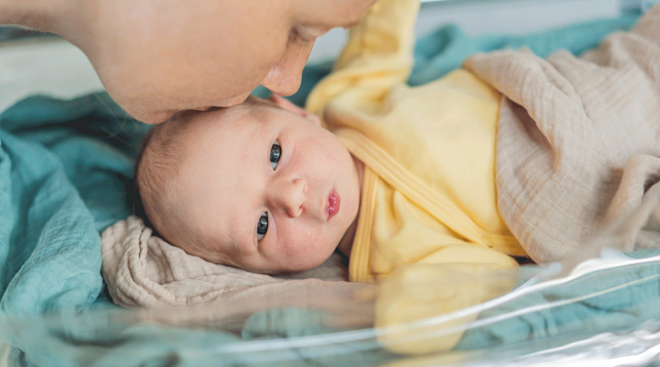The Baby Pinks: What to Know About Postpartum Euphoria
There’s nothing quite like giving birth: Meeting the little person who’s been growing inside of you for the better part of a year can feel almost supernatural. It’s normal to experience a wide range of emotions, from wonder and affection for the new member of your family to intense anxiety about how you’ll take care of this little person—and, of course, yourself.
Experiencing mood changes, such as the baby blues, is also common. But while you’ve likely heard of postpartum depression, you might not have heard of a less talked-about condition: postpartum euphoria. Sometimes referred to as “the baby pinks,” it can cause bursts of happiness, boundless energy and extreme productivity. (Hint: You might find yourself reorganizing your entire nursery closet.) On the flip side, you might also experience racing thoughts or have trouble concentrating.
As of yet, the condition is not well defined or understood. “It is more of a [layman’s] term, as opposed to a medical diagnosis,” says Lee Beers, MD, medical director for community health and advocacy and a professor of pediatrics at Children’s National Hospital.
While experiencing the baby pinks for a few days after birth isn’t usually something to be concerned about, it can be a sign of a more serious mental health condition. Want to understand when this post-baby bliss is normal—and when there’s more to it? Read on to learn all about postpartum euphoria and other potentially related mental health conditions.
Postpartum euphoria includes a constellation of symptoms, including intense excitement and happiness, increased energy or activity and difficulty concentrating, that usually occurs in the first couple of weeks after giving birth.
Similar to the baby blues, the baby pinks might occur for a couple of days and quickly pass. “A lot of times people get this boost of energy. It could be that you’re just happy,” says Kathleen Kendall-Tackett, PhD, a psychologist specializing in postpartum depression and perinatal mental health and clinical associate professor of pediatrics at Texas Tech University Health Sciences Center. “It could just reflect that things are going well, and oxytocin is flowing, and the mom is feeling good and she’s feeling supported. There’s nothing negative about that.”
More rarely, postpartum euphoria could be the first sign of a mental health disorder. Research suggests that moms who experience postpartum euphoria are more likely to be diagnosed with postpartum depression (PPD) six weeks after giving birth. In some cases, postpartum euphoria could actually be a hypomanic episode—or a period of extreme, elevated changes in your mood, emotions or activity—that occurs in mild postpartum bipolar disorder.
“Postpartum euphoria is a risk factor for subsequent postpartum depression, and a proportion of those [patients] will go on to be diagnosed with bipolar disorder,” explains Lauren Osborne, MD, a reproductive psychiatrist at NewYork-Presbyterian Hospital and the vice chair of clinical research in the department of obstetrics and gynecology at Weill Cornell Medicine. In a very small percentage of birth-giving parents, postpartum euphoria symptoms could be an early precursor to postpartum psychosis, she adds. This condition involves severe and intense manic episodes.
“You could think about it as almost like a gradient, where you have euphoria at one end and mania at the other, with hypomania in-between,” says Kendall-Tackett.
According to research, up to 50 percent of birthing people experience symptoms of postpartum euphoria in the five days after childbirth. The good news is that experts estimate that far fewer parents actually go on to be diagnosed with mood disorders. Kendall-Tackett and Osborne estimate that fewer than 5 percent are diagnosed with postpartum bipolar disorder, and studies show that roughly 0.1 percent of people who’ve given birth develop postpartum psychosis. Suffice it to say, the diagnosis is serious but rare.
In many cases, symptoms of postpartum euphoria pass without further issues. You’ll experience an elevated mood for a few days post-birth and bask in the glow of life with baby. But if symptoms persist and become more manic, they may potentially be a precursor to postpartum depression, postpartum bipolar disorder or postpartum psychosis—all conditions that require treatment. In fact, up to an estimated one in three women who are treated for mood disorders in perinatal clinics are believed to also have experienced postpartum euphoria symptoms, according to research.
Postpartum mental health disorders that remain undiagnosed and untreated pose risks for both Mom and baby. In addition to impacting your quality of life, all of these conditions can make it more challenging to bond with baby. “It’s harder to give more of yourself to your infant and to your family,” says Beers. “Infants do need those close relationships that serve, in return, interactions to really help support their brain development.”
Postpartum bipolar disorder can also increase your risk for suicidal ideation and self-harm, says Beers. And manic episodes can lead people to take risks that pose dangers to their health. “They go on massive shopping sprees, or they gamble away a bunch of money, or they drive recklessly, or they get involved in indiscriminate sexual relationships. They do things that are really very dangerous,” says Kendall-Tackett. Postpartum psychosis, meanwhile, can involve hallucinations and delusions, which could put both Mom and baby’s life at risk.
Research suggests that the turbulence of pregnancy and childbirth—that constant onslaught of physical and emotional changes—makes some people more likely to experience mental health conditions, says Osborne. Postpartum mood disorders are thought to be related to the large hormonal fluctuations that occur in the postpartum period.
There’s also a strong genetic component to postpartum mood disorders: Having a personal or family history increases your risk, says Beers. Unfortunately, you may not always realize that a family member had a postnatal mood disorder, since people shy away from discussing these conditions or don’t recognize the symptoms. “Sometimes people can go undiagnosed, especially if it’s some more subtle symptoms,” says Kendall-Tackett.
The stress of birth and the tremendous changes in your life paired with the lack of sleep typical with a newborn can increase the risk too. “Not having sleep is a big negative effect, because that can actually lead to some other behaviors that aren’t very safe and that could actually potentially trigger a more serious episode,” says Kendall-Tackett.
In some cases, hypomania-like symptoms can appear because of an overactive thyroid. According to the American Thyroid Association, an estimated 5 to 10 percent of women experience postpartum thyroiditis—a thyroid disorder that often involves hyperthyroidism, which causes symptoms such as anxiety and sleeplessness. “If you’ve only got the ‘up’ and you don’t have any of the ‘down,’ then that’d probably be the first thing I’d want to rule out,” says Kendall-Tackett. A simple blood test can check your thyroid levels; if they’re off, you may need to see an endocrinologist.
Kendall-Tackett adds that selective serotonin reuptake inhibitor (SSRI) antidepressants can sometimes kick off a manic episode in people who are predisposed to bipolar disorder. This can happen if someone is misdiagnosed with depression. “For most general practitioners and OBs, [postpartum bipolar disorder] is just not in their training. It would probably require a little more specialized care,” Kendall-Tackett says.
Beers and Osborne note that symptoms of postpartum euphoria include:
- Increased activity or energy
- Impulsivity
- Racing thoughts
- Difficulty concentrating
- Being easily distracted
- Requiring a lot less sleep than usual
- Rapid speech, feelings of euphoria (extreme happiness) or, if you’re experiencing a hypomanic episode, irritability
It’s important to note that you can experience symptoms of hypomania or euphoria and symptoms of depression at the same time, notes Osborne.
In many cases, postpartum euphoria symptoms last for just a day or two. However, if they continue for four days or longer, your healthcare provider may diagnose a hypomanic episode, says Osborne. Doctors may diagnose a manic episode if you experience more intense symptoms that last for at least one week, notes Kendall-Tackett.
“What worries me is when I hear people are up in the middle of the night doing step aerobics or writing all their thank you notes,” says Kendall-Tackett. “Even an occasional burst of energy like that, I’d say fine. But if this is something that’s happening a lot, then I’d be more concerned.”
If you’re experiencing symptoms of postpartum euphoria for more than a couple of days, or if you experience symptoms of depression after a period of postpartum euphoria, it’s important to see your doctor to rule out more serious mental health conditions.
Moms and their loved ones should be on the lookout for sudden and extreme changes in behavior. Whether you need to seek help has to do with the persistence of the symptoms and the degree to which they affect your functioning. For example, you may not need to see your doctor if you’re more talkative and don’t need as much sleep, but you’re otherwise behaving and functioning normally. “If, however, you start speaking so rapidly that nobody can understand you, and you’re not sleeping at all and are not able to function as a mother or worker or partner, that’s a problem,” says Osborne.
Because postpartum euphoria symptoms have been linked to a future PPD diagnosis, it’s important to keep an eye out for symptoms of depression—including feelings of worthlessness or guilt, loss of interest or pleasure in most things you used to enjoy, and a depressed mood most of the day.
To diagnose mental health conditions after birth, including postpartum bipolar disorder, your practitioner will interview you and assess whether you meet certain criteria in the Diagnostic and Statistical Manual of Mental Disorders (DSM-5)—the standard classification of mental disorders used by mental health professionals in the U.S.—says Kendall-Tackett.
If you’re seeking treatment, “the ideal place to go is to a reproductive psychiatrist,” says Osborne. However, she adds, “There are not very many of us.” So, you will likely start with your ob-gyn: “I think that increasingly [ob-gyns] in practice are much more attuned than they used to be to the existence of postpartum mental illness.”
Treatment for postpartum euphoria depends on the intensity and duration of your symptoms. A few days of postpartum euphoria symptoms that don’t escalate may not require treatment. Postpartum bipolar disorder or PPD may require psychotherapy and/or medications, including mood stabilizers, atypical antipsychotics or antidepressants, says Osborne. Postpartum psychosis treatment often involves hospitalization.
Experts strongly recommend lifestyle changes for treating all types of postpartum mental health conditions. This includes exercising, establishing a regular bedtime (as much as possible with a newborn) and eating healthy meals throughout the day. “If your insulin [gets out of balance] … that can cause some other negative symptoms,” says Kendall-Tackett.
Sleep disturbances are one of the biggest triggers for mania or hypomania in people who are vulnerable, so loved ones can support a new mom’s mental health by helping her to get more sleep. Watching baby so Mom can sleep longer stretches—even if she’s breastfeeding and can’t sleep for a full, uninterrupted eight hours—makes a big difference.
Family and friends can also watch out for unusual new mood symptoms that come on suddenly in new moms, since it can be difficult for moms to notice these changes in themselves. “Sometimes people just feel like they’re getting a lot done, and they’re feeling productive,” says Beers. A new mom’s circle can bring these symptoms to her attention and monitor them, as well as encourage her to read up on postpartum bipolar disorder and visit a doctor if symptoms persist, says Osborne.
If you’re concerned for yourself or a loved one, Kendall-Tackett suggests contacting Postpartum Support International. “They’ve got a new national 24/7 hotline [1-800-944-4773], and it’s staffed by mental health people,” she says. They can help you find you a local mental health practitioner and connect you to telehealth care.
Please note: The Bump and the materials and information it contains are not intended to, and do not constitute, medical or other health advice or diagnosis and should not be used as such. You should always consult with a qualified physician or health professional about your specific circumstances.
Plus, more from The Bump:
Lee Beers, MD, is the medical director for community health and advocacy and a professor of pediatrics at Children’s National Hospital.
Kathleen Kendall-Tackett, PhD, is a psychologist specializing in postpartum depression and perinatal mental health, clinical associate professor of pediatrics at Texas Tech University Health Sciences Center and author of Breastfeeding Doesn’t Need to Suck: How to Nurture Your Baby and Your Mental Health.
Lauren Osborne, MD, is a reproductive psychiatrist at NewYork-Presbyterian Hospital and the vice chair of clinical research in the department of obstetrics and gynecology at Weill Cornell Medicine.
Bipolar Disorders, Postnatal euphoria: are 'the highs' an indicator of bipolarity? , April 2005
CBHSQ Methodology Report, Impact of the DSM-IV to DSM-5 Changes on the National Survey on Drug Use and Health , June 2016
Archives of Women's Mental Health, A closer look at the nosological status of the highs (hypomanic symptoms) in the postpartum period , February 2020
StatPearls, Postpartum Psychosis, June 2023
Thyroid.org, Postpartum Thyroiditis
Diagnostic and Statistical Manual of Mental Disorders
Postpartum Support International
Learn how we ensure the accuracy of our content through our editorial and medical review process.
Navigate forward to interact with the calendar and select a date. Press the question mark key to get the keyboard shortcuts for changing dates.

































